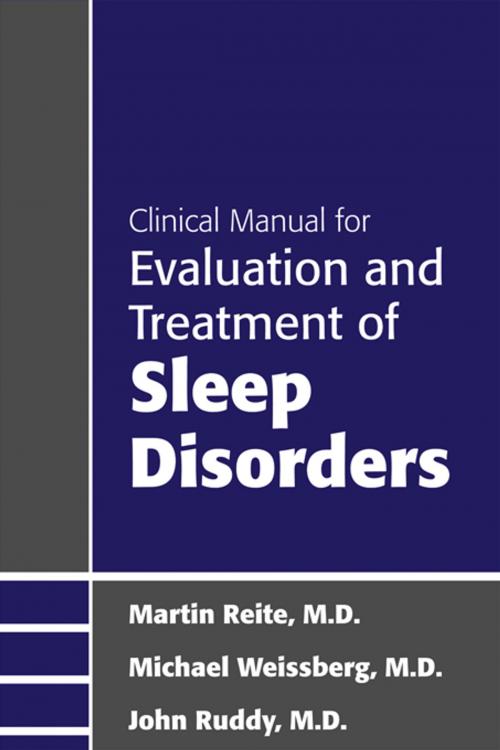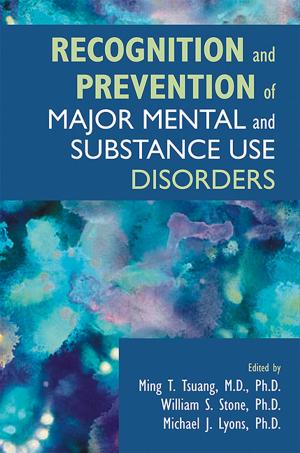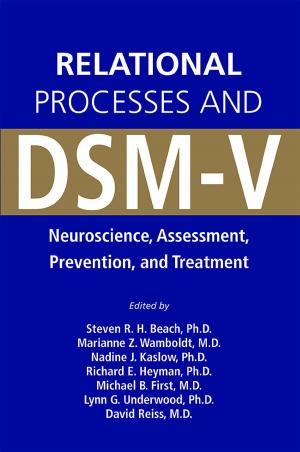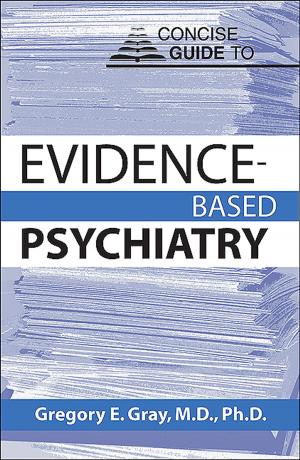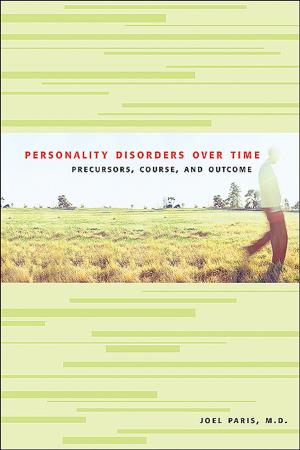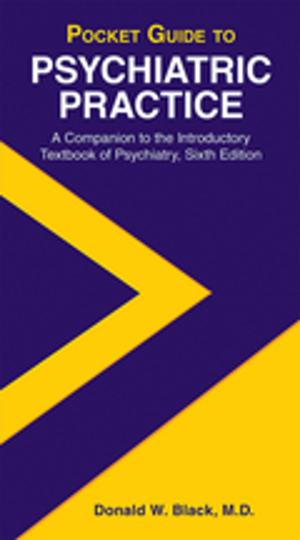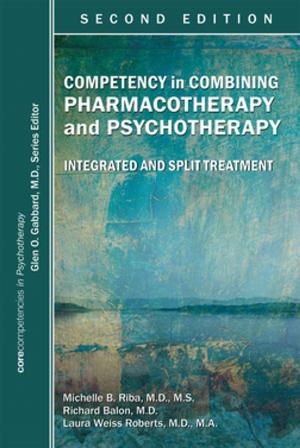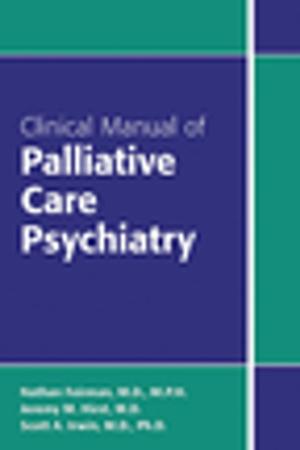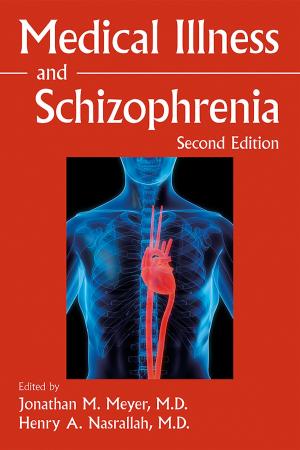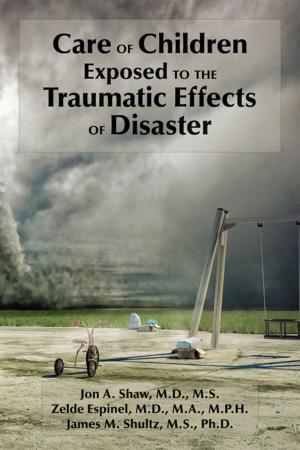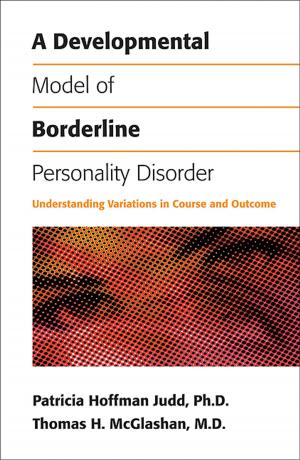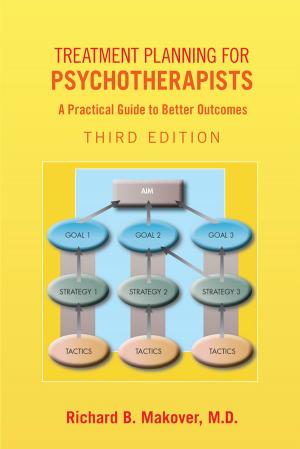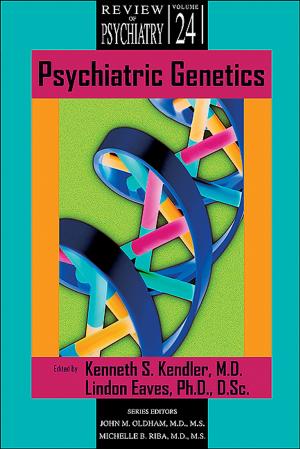Clinical Manual for Evaluation and Treatment of Sleep Disorders
Nonfiction, Health & Well Being, Medical, Specialties, Psychiatry| Author: | Martin Reite, MD, Michael Weissberg, MD, John R. Ruddy, MD | ISBN: | 9781585628711 |
| Publisher: | American Psychiatric Publishing | Publication: | November 13, 2008 |
| Imprint: | American Psychiatric Association Publishing | Language: | English |
| Author: | Martin Reite, MD, Michael Weissberg, MD, John R. Ruddy, MD |
| ISBN: | 9781585628711 |
| Publisher: | American Psychiatric Publishing |
| Publication: | November 13, 2008 |
| Imprint: | American Psychiatric Association Publishing |
| Language: | English |
The Clinical Manual for Evaluation and Treatment of Sleep Disorders is the first clinical text devoted solely to the diagnosis and treatment of sleep disorders that is both comprehensive and conveniently portable. The book's 13 chapters offer a concise, step-by-step method of differential diagnosis for some of the most common sleep complaints encountered in today's professional clinical practices. And, unlike most other clinical textbooks, its small size gives it a broad accessibility.
The manual begins with an overview of sleep physiology and pathology, including eight common laboratory procedures and three major diagnostic nomenclatures for sleep disorders. Each of the chapters that follow provides an overview of symptoms, tests, and various behavioral and pharmacologic treatments for a wide range of sleep conditions, including insomnias, breathing disorders, parasomnias, and several common medical disorders that are often associated with sleep complaints. The latter chapters discuss sleep disorders in distinct patient demographics -- specifically children, women (during pregnancy, the postpartum period, and menopause) and the increasing population of older adults. The book concludes with a chapter devoted to pharmacologic interventions, detailing the use of and clinical issues associated with 25 different types of drugs.
Additional benefits of the manual include: A "Pearls and Pitfalls" section of bulleted facts at the beginning of each chapter Figures, tables, and helpful takeaways (such as a differential diagnosis decision tree and patient questionnaires) in many chapters An appendix of 65 frequently used abbreviations related to sleep complaints and disorders Patient handouts that include sleep tips and information on insomnia, abdominal breathing, delayed sleep phase syndrome, melatonin and light treatments, sleep walking, and jet lag
No other clinical text provides such a breadth of information on sleep disorders in such a compact, easy-to-carry volume. Its extensive content makes this book ideal for nursing, psychiatric, social work, and family practice settings, as well as a useful teaching implement in medical classrooms. By classifying sleep disorders according to clinical presentation, patient demographic, and related conditions, the Clinical Manual for Evaluation and Treatment of Sleep Disorders offers clinicians a valuable reference tool in the diagnosis and treatment of sleep disorders.
The Clinical Manual for Evaluation and Treatment of Sleep Disorders is the first clinical text devoted solely to the diagnosis and treatment of sleep disorders that is both comprehensive and conveniently portable. The book's 13 chapters offer a concise, step-by-step method of differential diagnosis for some of the most common sleep complaints encountered in today's professional clinical practices. And, unlike most other clinical textbooks, its small size gives it a broad accessibility.
The manual begins with an overview of sleep physiology and pathology, including eight common laboratory procedures and three major diagnostic nomenclatures for sleep disorders. Each of the chapters that follow provides an overview of symptoms, tests, and various behavioral and pharmacologic treatments for a wide range of sleep conditions, including insomnias, breathing disorders, parasomnias, and several common medical disorders that are often associated with sleep complaints. The latter chapters discuss sleep disorders in distinct patient demographics -- specifically children, women (during pregnancy, the postpartum period, and menopause) and the increasing population of older adults. The book concludes with a chapter devoted to pharmacologic interventions, detailing the use of and clinical issues associated with 25 different types of drugs.
Additional benefits of the manual include: A "Pearls and Pitfalls" section of bulleted facts at the beginning of each chapter Figures, tables, and helpful takeaways (such as a differential diagnosis decision tree and patient questionnaires) in many chapters An appendix of 65 frequently used abbreviations related to sleep complaints and disorders Patient handouts that include sleep tips and information on insomnia, abdominal breathing, delayed sleep phase syndrome, melatonin and light treatments, sleep walking, and jet lag
No other clinical text provides such a breadth of information on sleep disorders in such a compact, easy-to-carry volume. Its extensive content makes this book ideal for nursing, psychiatric, social work, and family practice settings, as well as a useful teaching implement in medical classrooms. By classifying sleep disorders according to clinical presentation, patient demographic, and related conditions, the Clinical Manual for Evaluation and Treatment of Sleep Disorders offers clinicians a valuable reference tool in the diagnosis and treatment of sleep disorders.
